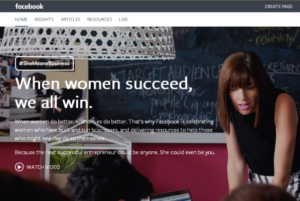
by rossanahead | Mar 21, 2017 | Trainers
The Employers Confederation of the Philippines’ “9th Executive Labor Updates: Symposium on the New DOLE Department Order on Contracting and Subcontracting” will take place on March 24, 2017.
In keeping with President Duterte’s campaign promise, the new DOLE policy (Department Order 174) on contracting and sub-contracting is out. What are its provisions that will strengthen the rights of workers on security of tenure? How will it prevent labor-only contracting and restrict job contracting? Will the new policy allow some measure of flexibility to deal with the realities and imperatives of business? These and many more questions will be answered during the symposium.
Venue of the trade event, which will run from 12:30 p.m. to 5:00 p.m., is the SMX Convention Center, Function Room 4, Seashell Ln, Pasay City.
For more details, click here.
Featured Photo from Paolo Barcelon/CNN PH

by rossanahead | Mar 20, 2017 | parenting
They say two heads are always better than one; in traveling, dining out and maybe even truer in parenting. Parents always want to be a part of their children’s lives, to be there for them while they grow up. But to raise your kids demands more than just love and affection. You have to send them to school, buy what they need and give them the best support system you can offer. Imagine doing it all just by yourself, think of just how dreading it may be. This is why I have always looked up to single mothers.
I used to work as a customer service agent in a BPO company. Since our work would start when most people are off to their beds and end when most people are just having their first cup of coffee, it’s usually just easier to ask co-workers out to socialize. I remember attempting to ask Mickie, our boss, out for breakfast on a Saturday morning; our own way of celebrating the end of the week. Before I could even ask her, she was already out and on her way home. She usually goes home as soon as our shift ends. She says this is because of her two lovely kids that she supports and takes care of, Ich and Micah. We can only imagine how exhausting it was for her doing it all alone. Although this was the case we never heard her complain about the lack of sleep or even saw her lash out because of too much stress. I wondered how she could keep up with life when even I was having a hard time balancing my work, my family and friends.
During our breaks, I would notice how she would take her phone and take this little extra time to send messages to her kids. She says that this important to keep you in your children’s lives. Although it’s not hard for Mickie to see her kids because it’s just her and her kids at home, there are times when she has to extend a few hours in the office to finish work so even the smallest gestures such as leaving written notes for your kids would remind them that you care. Keeping them in the loop, like telling them what time you’ll go home or leave, would make them understand and adapt to the situation. Mickie believes that children are resilient, so making the extra effort of keeping them a part of your life too can make them understand.
It’s amazing how her kids grew up to be such strong and loving kids; this may be the greatest achievement any parent can be proud of. This isn’t something you accomplish overnight, though. She says the toughest challenge being a single parent is that you have to be everything and everywhere. Any amount of money can be earned, sleep can be recovered but the feeling of success seeing your kids grow up well is priceless. So she always tries to give the best of herself. Although it’s inevitable that regardless of how much effort and love you give, you will feel that there may be a gap in your kids’ heart and it’s heartbreaking to think that you cannot fill these gaps. While being a single parent, you get twice the hugs, the kisses, and the heartaches too. The stress that this can bring is unimaginable.
The challenges may be tough, but if your goal is to give the best life to your kids you always have to choose to stand up and be stronger. Mickie reminds herself every day that she is the only pillar her children can lean on, so don’t forget to always choose to be strong. This why she says it’s important to remember that you have to keep your sanity too. A simple “me time” at home, sleeping all day, traveling or going out with your friends are great ways to rest and recharge. It is only when you can keep yourself sane that you can be the best at what you do and it is only when you love yourself that you can offer a greater amount of love to your children.
Mickie and all the single working mothers out there deserve all the appreciation the world can offer. Juggling these three professions may be extremely hard, but as they always say sacrificing for the people you love that makes everything else easier.
Written by Love Gardose

by rossanahead | Mar 20, 2017 | Business Tips, Startup Guide
 Who run the (business) world?
Who run the (business) world?
Girls, as a matter of fact, according to a recent Facebook study, if only they are given the right entrepreneurial opportunities—which could translate to almost four million new jobs in the country.
Launched in time for International Women’s Day on March 8, the study, conducted by Development Economics and YouGov on behalf of Facebook, revealed that almost nine of 10 Filipino women expressed their desire to put up their own businesses.
Read more at Business Inquirer.
Featured Photo from Freepik

by rossanahead | Mar 19, 2017 | Business Tips
By Rowena Diocton
Now that popular social networks like Facebook and Twitter are inundated by fake news articles, it’s easy for anyone to be swayed by Internet rumors and outright propaganda. For us women, it’s important to differentiate between genuine and manufactured news in social media, as this can affect decisions we make in our personal, business, and professional lives.
Living in the ‘Post-Truth’ Era
Editors and opinion leaders stress how we now live in the post-truth or post-fact era. Oxford Dictionaries even named “post-truth” word of the year in 2016.
And who could blame them when misinformation has been widely used for various intents during the past year? U.S. President Donald Trump has been accused of repeatedly misappropriating information and lying to push his agenda. Renowned Filipina journalist Maria Ressa called out President Rodrigo Duterte’s then-campaign spokesman Peter Tiu Lavina for sharing a photo of a rape-slay victim to justify the drug war in the Philippines, even as the photo was taken in Brazil. Misinformation has been so extensive that the largest technology names in society, Facebook and Google, are ramping up their efforts to combat fake news.
But is this really the first time we have seen fake articles like these? Are we really in the post-truth or post-fact era?
Alexios Mantzarlis, director of the International Fact-Checking Network at Poynter, does not think so. In the article “No, We’re not in a ‘Post-Fact’ Era,” Mantzarlis pointed out that the buzzwords above have been used in various campaigns years ago.
Nothing New
Fake news is nothing new. As early as 2009, Mashable has alerted us with a list of the various Internet hoaxes that people usually fall for, such as the Montauk monster, the kidney thieves of New Orleans, and the discovery of Bigfoot’s body. Fake news and articles have been consistently used online to spread political propaganda, misleading marketing, dangerous malware, information-stealing scams, and other nefarious schemes.
What’s new, however, is the use of technology and social media to disseminate fake news and influence a large group of people. Real and fake accounts (“sock puppets”) have been used to create false perceptions in social media, which in turn affected the recent Philippine elections. Trolls who hide under the guise of “social media marketing consultants” have been paid up to P2,000 to P3,000 a day to condition the minds of Filipinos to believe in their propaganda.
How to Stay Clear of the Abyss of Misinformation
Misinformation has always been a weapon of manipulation. Swaying public opinion is something that has been done even before the terms post-truth and post-fact were coined. Getting duped by wrong information can get you to back ideas against your values and the values your organization holds. Our professional and personal lives often intertwine in the online sphere, making the things we share open to public scrutiny. How can you make sure you’re not getting duped into believing a half-truth or an outright lie? Ask yourself these questions:
Does it come from a reputable source?
Exercise due diligence before sharing anything. Check first where your information is coming from. Is it from a news site and does it explicitly say so in its About Us section? If yes, is it a news site known for running balanced stories with more than one or two sources? If it’s not a news site, is it a blog? If yes, who is running the blog and what are the bloggers’ motivations? Are those behind the information linked to any political factions, commercial groups, or other organizations? Have they been criticized for their coverage? Are they objective and fact-based in their coverage? Have you gone to their website to check what other articles they share?
Have you checked the web address?
Remember to always check the web address or URL of the article you’re sharing as well. Fake-news sharers are often duped by what looks like legitimate URLs at first glance but are really misspellings of the real URL. For instance, fake articles are shared online by fake-news propagator theguard1an[dot]com, whose URL can deceive people into believing that they are reading news from legitimate news provider theguardian[dot]com. Note that legitimate news sources like The Guardian are now exercising caution in shared links and are adding their branding to the posts. This measure, however, may still be bypassed, and branding can be copied by others.
Have you read it completely?
One rule of thumb for every article you share on social media is this: read it first. Researchers from the Columbia University found that majority of links shared on Twitter were not clicked. People tend to share articles without reading them first, and this can be detrimental because headlines do not necessarily represent the article. For instance, you may remember the last time you clicked on something exciting, only to be taken to an article that not only has an entirely different title but has less exciting content than promised. These misleading articles often use the formulaic “Something happened to someone, you won’t believe what happened next!” in their headlines to attract clicks.
If you read an article through completely, you will know if it represents all sides fairly. You will be able to check if it is a work of fiction being misrepresented as news. You will also be able to gauge if it’s satire by reading between the lines. So make it a point to read something first before sharing it.
Can you verify the facts independently?
To be safe, you can also check if the sources cited in the article indeed said the things they said. Look for at least two or three other reputable sources that cite the information you’re going to share. If it’s breaking news and you’re sharing something based on just one source, be aware that you’re doing so, but also find time to double-check afterwards if the story is indeed true.
Even trained investigators in the country have been duped by fake news websites. The National Intelligence Coordinating Agency has been called to a hearing for citing a fake news article in an intelligence report.
Have you run news items by fact-checking and scam sites?
One great thing about the Internet is it being the information superhighway, information being the operative term here. If a certain source is a known fake news source, there is a chance that someone has called it out in a shared space online. Before sharing, take the time to run the website and title through fact-checking and scam sites such as PolitiFact, the soon-to-be-relaunched tool ABC Fact Check, or the Facebook fake-news detector plugin B.S. Detector.
Once in a while, buzzwords backed by half-truths and outright lies will pop up to influence our thinking, so it’s wise for us women to know how to separate truths from lies, especially in social media where all the mischief is now happening. Putting in that extra effort can save you not just embarrassment, but heartache as well. Swallowing wholeheartedly persuasive but likely dubious news and information can so easily lead us to make decisions in our personal life, at work, or in business that could have disastrous results.
Photo: Jason Howie

by rossanahead | Mar 15, 2017 | Trainers
The Employers Confederation of the Philippines is holding its 27th ECOP MGM on March 23, from 1 p.m. to 5 p.m., with the theme “How Effective Are Your Training Programs and Tools?”
The meeting, to be held at St. Luke’s Medical Center in Global City, Taguig, will discuss strategic planning in the digital age, effective team-building programs, and game-based learning as an effective training tool.
These sessions can help managers and executives build their own developmental tools for the people they manage, said ECOP.
In addition, the organization has invited Labor Secretary Silvestre Bello to give updates on the NWPC Productivity Toolbox, two-tiered wage system, and other new labor policies.
For inquiries, call (02) 617-1301, (02) 890-6512, or (02) 890-4847. For more details, click here. – RCA
Featured Photo from Content Hacker




 Who run the (business) world?
Who run the (business) world?
